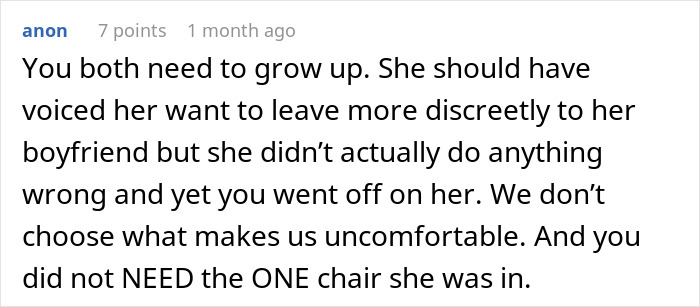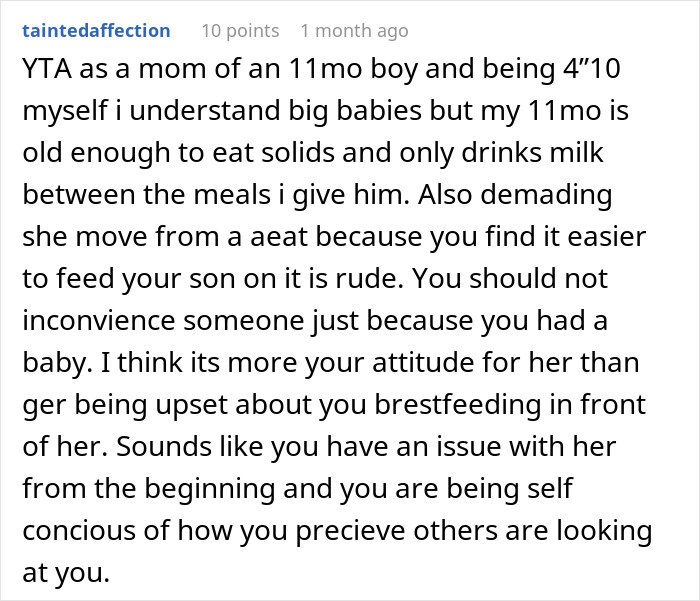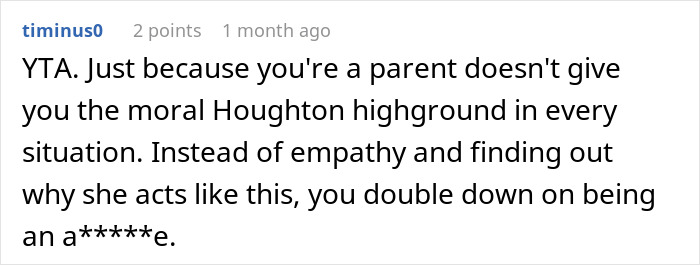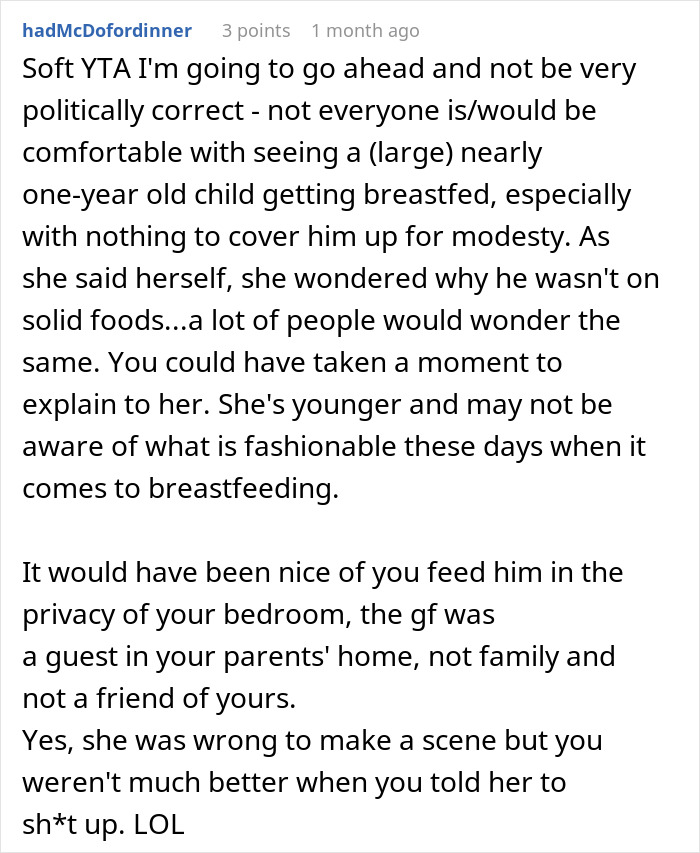Breastfeeding is a natural process that allows babies to get the nutrients they need, boost their immune system, and strengthen child-parent bonding. It also helps the nursing parent to recover faster after birth and protects them against various health issues. However, such an innate gift is still quite a taboo subject for some people, especially when it’s done in public places.
One of them is redditor Born_Archer_9113’s brother’s girlfriend, who found it strange that she nursed her baby and even accused her of enjoying making her uncomfortable. This made the new mom extremely frustrated, which prompted the girlfriend to storm off.
Scroll down to find the full story and a conversation with international board-certified lactation consultant Leigh Anne O’Connor, who kindly agreed to answer a few questions on the topic.
Breastfeeding is a natural process that benefits both the nursing parent and the baby

Image credits: Sarah Chai/Pexels (not the actual photo)
However, this woman found public nursing uncomfortable and even shamed a new mom for it
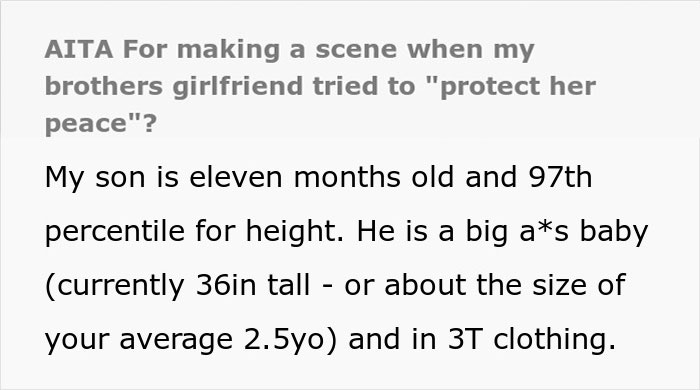

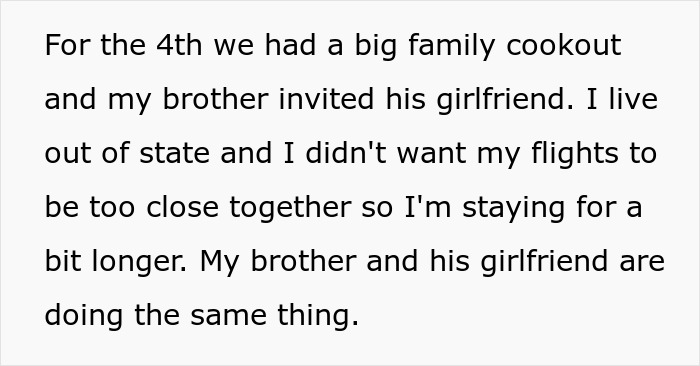

Image credits: Samuel Peter/Pexels (not the actual photo)
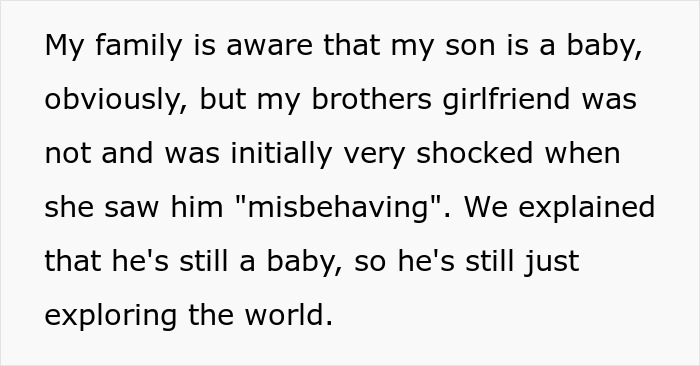
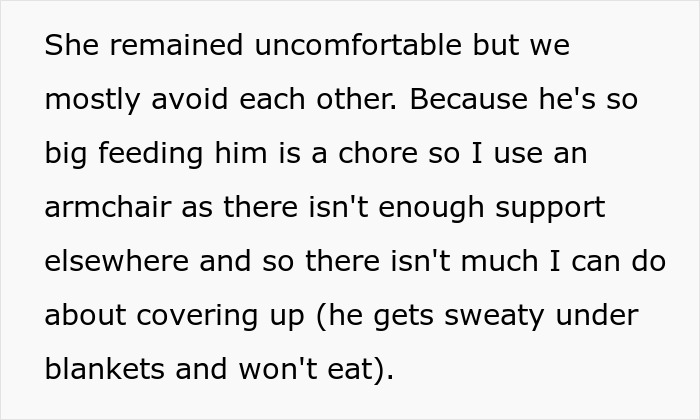
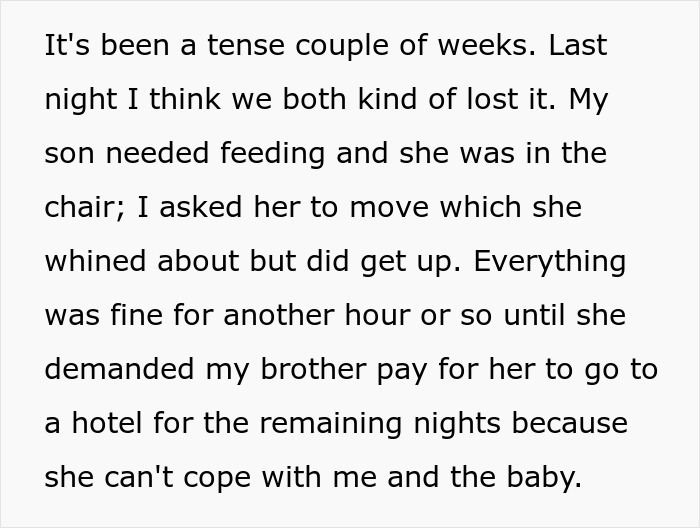

Image credits: Liza Summer/Pexels (not the actual photo)
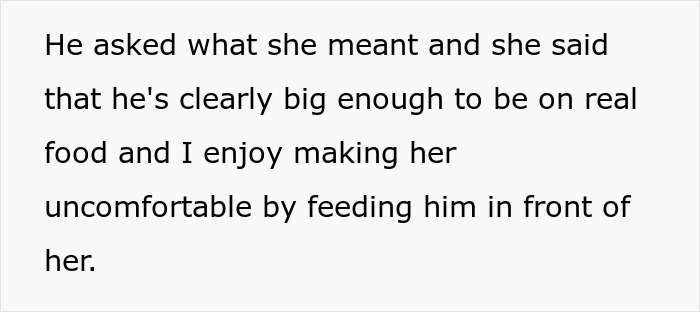
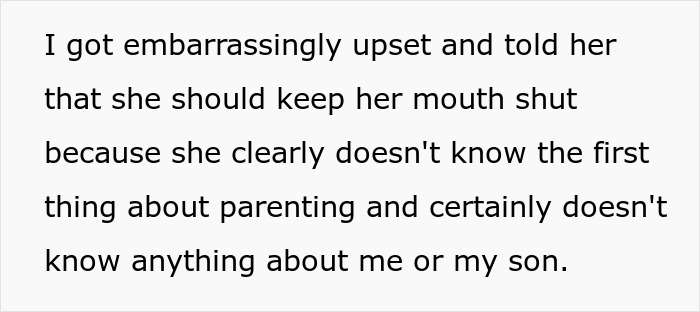
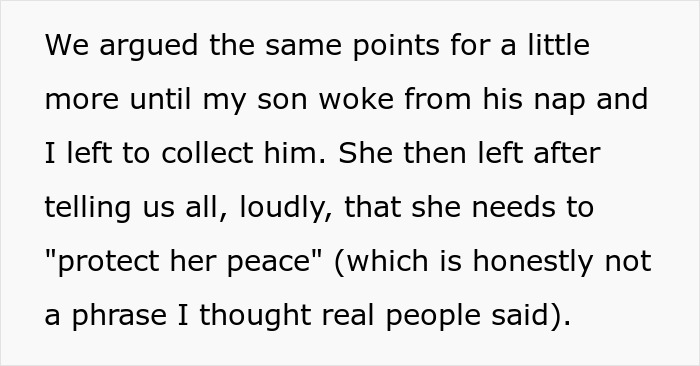
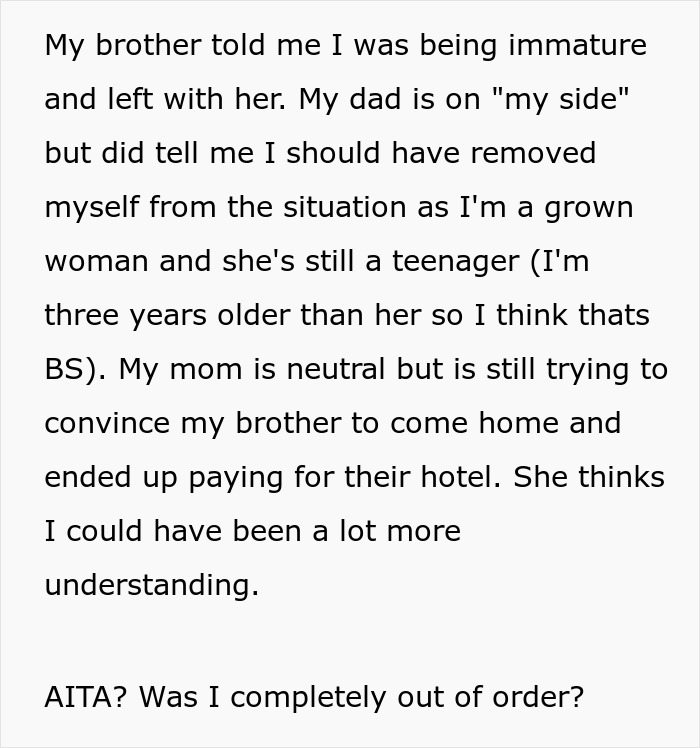
Image credit: Born_Archer_9113
Nursing parents are protected by the law to peacefully feed their baby without needing to cover up or move elsewhere
Aversion to women’s bodies can be traced back to the ancient Greeks, writes the author of Inventing Baby Food: Taste, Health, and the Industrialization of the American Diet, Amy Bentley. However, it wasn’t until the 1950s and the rise of Playboy culture that women’s chests started to be viewed more as objects of desire and less as a source of food for infants.
The invention of baby formula and the promotion of scientific research claiming that it was better than mother’s milk (which fortunately has been disproven) further fostered people’s intolerance for breastfeeding. By the mid-20th century, most Americans had attached a sense of disgust to this natural process. Nursing in private and especially in public started to feel abnormal and destabilizing for women.
But even though the times have changed and nursing parents are protected by the law to peacefully feed their baby without needing to cover up or move elsewhere, people still can’t seem to completely shake off the shame and the sexual connotation. Women are still asked to leave public pools for breastfeeding and often receive inappropriate comments from colleagues or passersby. A Geoforum study uncovered that mothers who publicly breastfed risked being seen as bad parents, unattractive, lazy, lacking self-respect, and sexual aggressors.
International board-certified lactation consultant Leigh Anne O’Connor rationalizes that people who still shame nursing parents for breastfeeding in public may project the feelings they have about their own bodies. “Also, breastfeeding has been hidden for so long—putting breastmilk in bottles, going to “special” rooms to feed babies, wearing breastfeeding “burkas.”
Negative reactions from onlookers are one of the reasons why some women are hesitant to breastfeed in public. They feel embarrassed and as though they’re doing something illegal, while in truth they’re providing the nutrients their baby desperately needs.
Mothers don’t deserve the added pressure of feeling anxiety around feeding their children in public
“We urgently need the public to reframe their view of breastfeeding, so that it is understood as nutrition for babies, rather than a political or sexualised act by their parents,” urges Dr. Aimee Grant of Swansea University’s Center for Lactation. “This means that the public should not stare, tut or make negative comments about breastfeeding babies.”
“If she wants to breastfeed without covering up her chest? Then she should. If she wants to only breastfeed with a cloth covering her chest? Then she should. If she doesn’t want to breastfeed in public at all? Then that is alright! The point is that it should be based on her own will, not the pressure or judgement of others,” says Dr. Leila Hilal from Drexel University College of Medicine.
Some people need to understand that when a parent is nursing, 10 times out of 10 it’s simply to nourish the baby. It doesn’t have a hidden sexual agenda. It only means that their baby is hungry. Amidst their body changing, transitioning into parenthood, and adopting new responsibilities, mothers don’t need the added pressure of feeling anxiety around feeding their children in public.
It’s something women should feel confident and proud of doing. “If someone is willing to share their opinions, you have every right to also share yours,” says Emily Guarnotta, PsyD, a clinical psychologist. “It is always helpful to have a supportive person with you. Or to be with other breastfeeding parents—there is strength in numbers,” adds O’Connor.
Meanwhile, Saba Harouni Lurie, a licensed marriage and family therapist, suggests, “A helpful approach towards someone who seeks to shame you for breastfeeding in public could be: ‘I understand my breastfeeding is uncomfortable for you, however, I’m taking care of my child and you’re welcome to look away. By responding in this way you establish that you are not going to make any changes to your behavior in a cool and collected manner.”
To make breastfeeding less of a taboo topic, O’Connor urges to stop hiding and making ‘special’ places for parents to secretly feed their babies. “Normalize breastfeeding,” she proposes. “Educate all healthcare workers about breastfeeding. Have breastfed curriculum in high schools. Require ALL healthcare workers to be educated about breastfeeding. Stop using bottles as the image for feeding babies. Stop the marketing of formula, especially in low-income areas. Hospitals should not be giving away formula.”
The mom provided more details on the situation
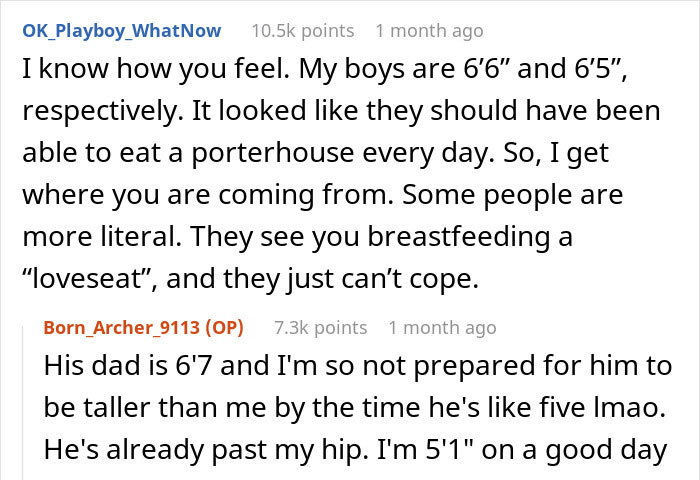
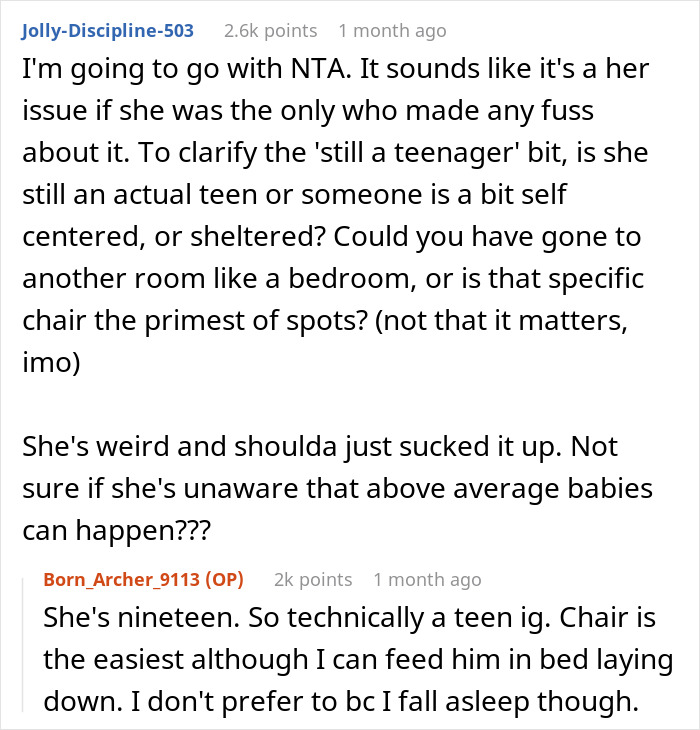

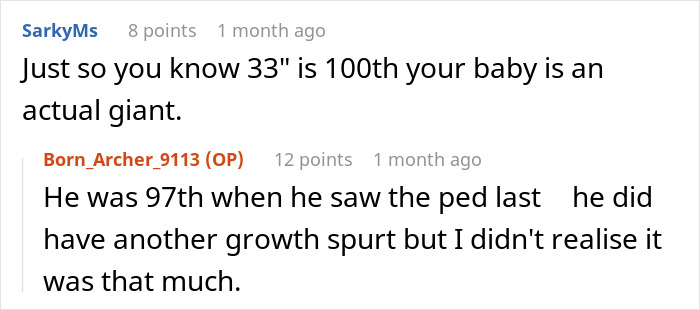
Some readers agreed that the teenager was the problem
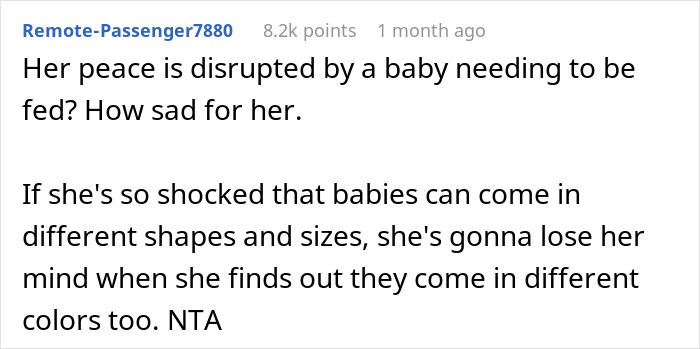
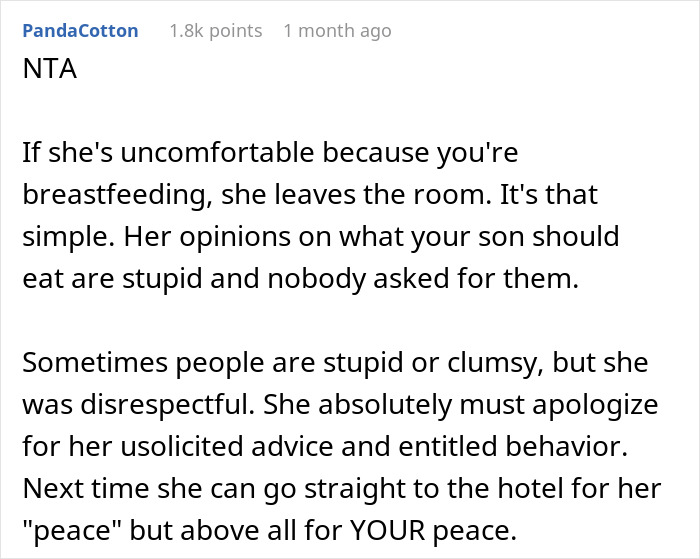
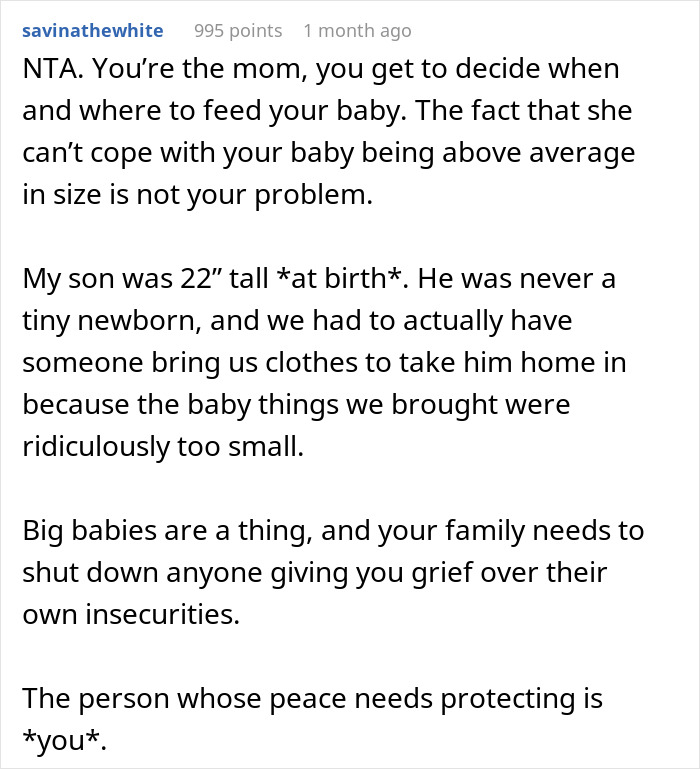
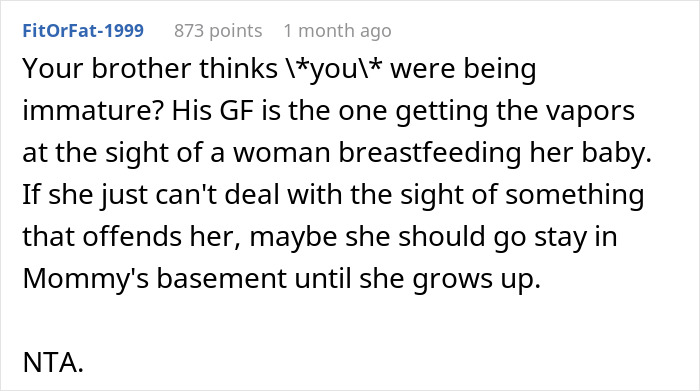
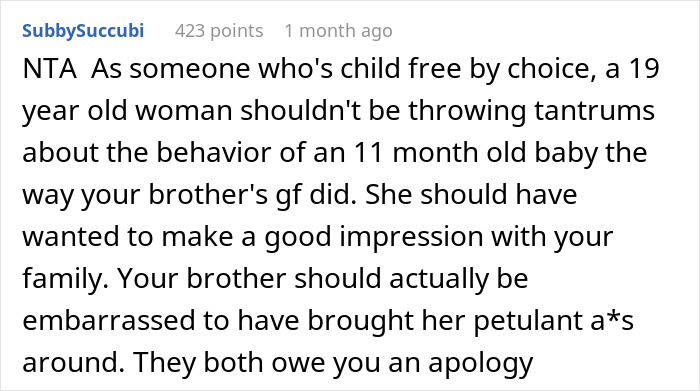
Meanwhile, others had more controversial opinions
